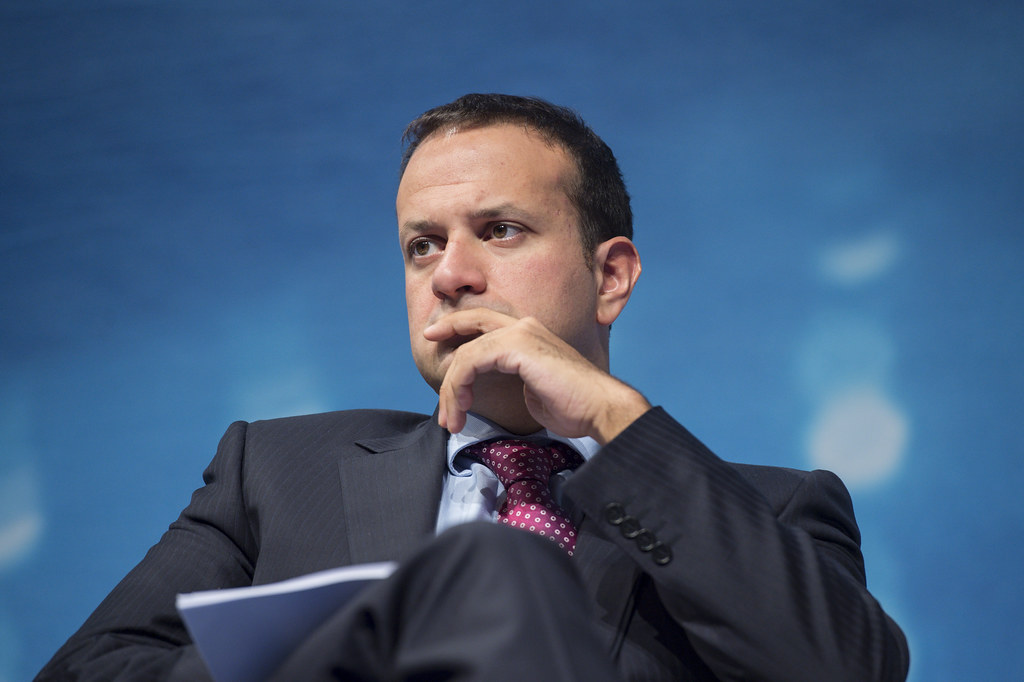Leo Varadkar held the record for the youngest Taoiseach in the history of the State, and although Simon Harris has since eclipsed him for this title following the Fine Gael Ard Fheis, this is something for which Varadkar will be remembered.
While the adjectives “young” and “progressive” very often go hand in hand in politics, Varadkar is a clear outlier to this rule. He notably said last week while on high-profile engagements in Washington, D.C., that he is not “woke”, although he continued by saying that he has “never really been fully sure what woke and anti-woke means.”
His recent resignation from the office of an Taoiseach sent shockwaves throughout Irish society. To put it simply, nobody, including the most well connected journalists and his closest advisors, saw it coming, even hours before the announcement.
This is somewhat of a departure from his typical behaviour as Taoiseach. He was not known for rash decisions. In fact, he faced criticism for the snail-like pace with which he conducted government business at times. However, when one considers the recent defeat in the care and family referenda, coupled with the forecasted battering in the upcoming local and European elections, it is understandable why Varadkar wanted out with little notice.
This contrast may prove to represent Varadkar’s turn as Taoiseach, as well as his political career more generally. He perhaps is an amalgam of contradictions that, when looked at collectively, makes sense.
As a gay man of colour in conservative-leaning politics, some have viewed him as an outsider, or at least a departure from the typical Fine Gael leader mould. He has often leaned into this by using it to his advantage. However, even within the party itself some insiders say he never quite fit in – using a rather bizarre example of him not enjoying 10pm chicken dinners on Friday nights with coalition colleagues to illustrate this.
Some claim that many of his policies as Taoiseach have effectively treated students, and more broadly young people across Ireland, as an afterthought, a belief that can be traced back to the government’s admittedly poor treatment of young people during the COVID-19 pandemic.
“Critics would say that he has pulled the ladder up behind him at every chance”
This has not stopped his image, however, from being one of the future: as an explicitly middle-class, openly gay man of colour in Ireland, he was cast as the embodiment of personal opportunity and societal progression at its finest. On the other hand, critics would say that he has pulled the ladder up behind him at every chance.
In many ways, he has. In his role as Taoiseach or Tánaiste in this coalition government, he has done little to deal with the current cost of living crisis — the lifting of an eviction ban in 2023 may even point to an effort to achieve the exact opposite — and there has been tangible decay in public services and state-run operations. We are all too familiar with issues surrounding public transport, the health service, and the education system, to name but a few areas.
This undoubtedly leads to the less than favourable views that many students hold of him. However, he isn’t to blame for the crisis experienced by secondary school students during the pandemic. It was Micheál Martin who appointed Norma Foley, who had less than three months Dáil experience at the time, to the office of Minister for Education. In spite of this, Varadkar has a less-than-stellar record when it comes to education.
He resigned during a time of mass oversubscription in secondary schools in major towns and cities, owed to the consistent underfunding of the sector and poor pay for the profession, amongst other factors. This can lead to students having to travel unreasonable distances for their education, or some parents having little choice but to pay for private schools.
Furthermore, there has been a steady decrease in working conditions and standards for post-graduate workers, an issue strongly affecting third-level institutions across the state. In fact, the Trinity branch of the Postgraduate Workers’ Organisation in January announced plans to strike in the final weeks of Hilary Term, saying that their core demands of a living wage, improved workers rights amongst other things have not been met.
“He has established an “failed Hist committee member candidate to Fine Gael party leader” pipeline”
In his resignation speech outside of Leinster House, Varadkar listed “investment in technological universities” as one of his major achievements, and by extension an achievement of the two governments which he has led. People across the state, however, may be likely to credit soon-to-be former Minister for Higher Education Simon Harris for these efforts.
Furthermore, while he may take credit for the achievements in education, the buck stops with Varadkar on all of these issues, and as the first Trinity-educated Taoiseach, who also attended the King’s Hospital School, some students fail to be surprised at the state of education after 7 years of Varadkar’s leadership.
But he was once a student himself. Here in Trinity, he initially studied law for a brief stint before switching to medicine. Furthermore, while his time in Trinity perhaps wasn’t the easiest, he has established an “failed Hist committee member candidate to Fine Gael party leader” pipeline, a career trajectory that nobody is yet to follow.






